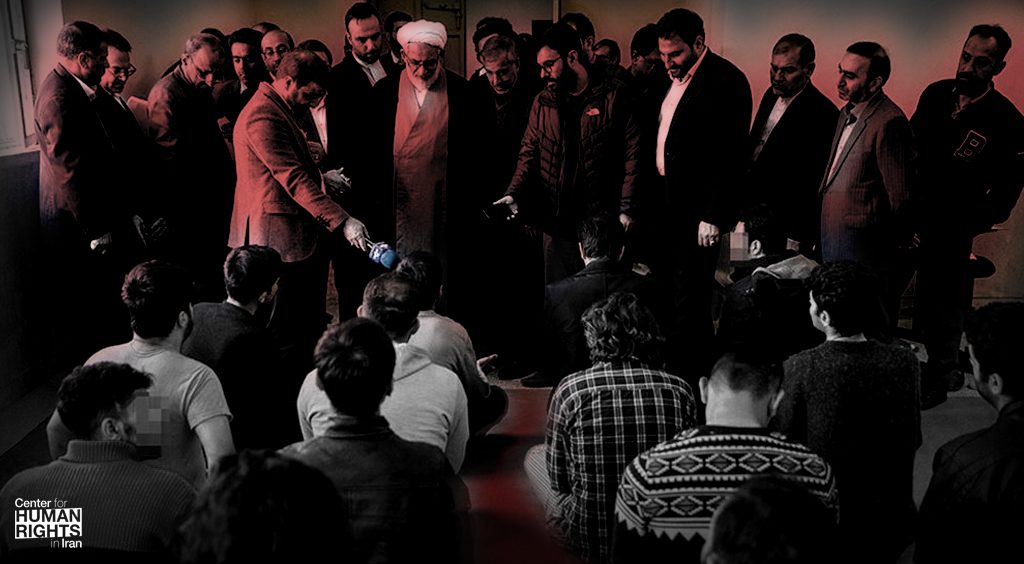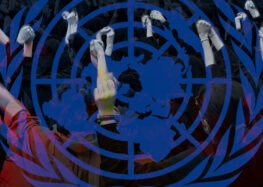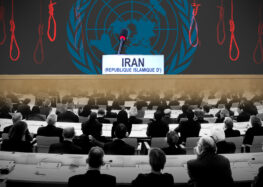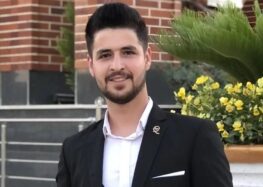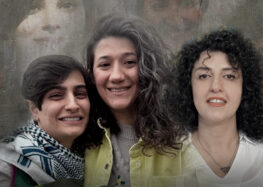UN Press Release: Experts Demand Iran Quash Death Sentences Against Protesters
Farsi version (PDF)
GENEVA (16 July 2020) – UN human rights experts today strongly condemned the decision to uphold death sentences against three men for participating in protests in November 2019. The three – Amir Hossein Moradi, Saeed Tamjidi, and Mohammad Rajabi – say they were tortured to make confessions, which were later used against them during unfair trials.
“Today we join hundreds of thousands of Iranians on social media who condemned these death sentences. We urge the head of the judiciary to immediately quash this decision and to grant a prompt and independent judicial review. We also call for an independent and impartial investigation into the allegations of torture, followed by the prosecution of perpetrators if the allegations are well-founded,” they said.
“The imposition of the death penalty on the basis of overbroad national security charges would amount to an egregious violation of Iran’s human rights obligations, including the prohibition of torture, as well as the rights to life, liberty and security, and to freedom of expression and peaceful assembly,” the experts* said.
On 14 July, it was confirmed that the Supreme Court upheld death sentences against Moradi, Tamjidi, and Rajabi for moharebeh (taking up arms to take lives or property and to create fear in the public) and for ‘participation in vandalism and arson with the intent to counter the Islamic Republic of Iran’ during widespread protests in November last year. The three men deny the charges. The death sentence was originally imposed on 22 February this year by Branch 15 of the Revolutionary Court, which also imposed prison and flogging sentences on other charges. “We reiterate that international law limits the imposition of the death penalty to the most serious crimes and precludes its imposition if a fair trial has not been granted and if other rights have been violated”.
“From the outset, their arrest and detention and subsequent trial is replete with allegations of denial of their due process rights. In initial interrogations – during which they were subject to enforced disappearance and torture – they were denied the right to a lawyer. These violations continued at trial, where court-assigned lawyers for two of the men reportedly did not provide an adequate defence in the first trial, while chosen lawyers were not allowed to represent them in the Supreme Court and were blocked from accessing their case files during the trial,” the experts said.
On 19 November 2019, Moradi was arrested by Iranian security police after being identified during the protests. Fearing arrest, Tamjidi and Rajabi fled to Turkey. However, they were arrested upon their return to Iran on 28 December.
“The three men were subjected to torture by Iranian authorities in detention, including beatings, electric shocks and being hung upside down by their feet. As a result of the torture, the men did confess. Moradi reportedly confessed after interrogators said he would only receive medical treatment if he confessed. However, these interrogators did not provide him with medical treatment after he confessed,” the experts stated.
The nationwide protests in November 2019 erupted following a change in the Government’s petrol price policy. The protests were violently suppressed by state security forces, with at least 304 people killed. The crackdown was accompanied by mass arrests of protesters. The Government has not conducted an impartial, independent and transparent investigation into the protests’ events or released official figures regarding the number of deaths and injuries.
“This case is not an isolated incident. There are widespread reports of arbitrary detention of protestors and torture to obtain false confessions. Other individuals have also reportedly been imprisoned and possibly sentenced to death for their participation in the protests”, the experts highlighted.
“We have raised our concerns with the Government of Iran, and again urge it to conduct an independent, impartial and transparent investigation into the events of November 2019, to prosecute state officials found to be involved in human rights violations, and to free all individuals detained for peacefully protesting,” the experts said.

